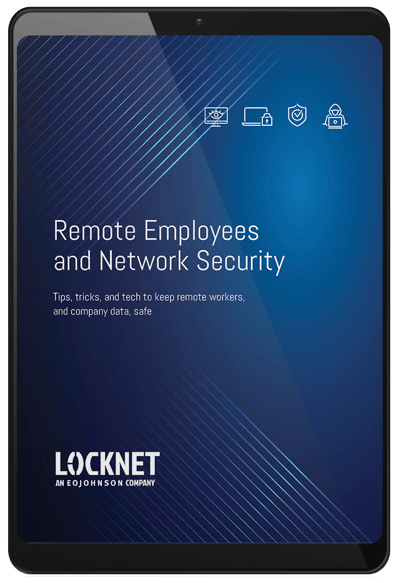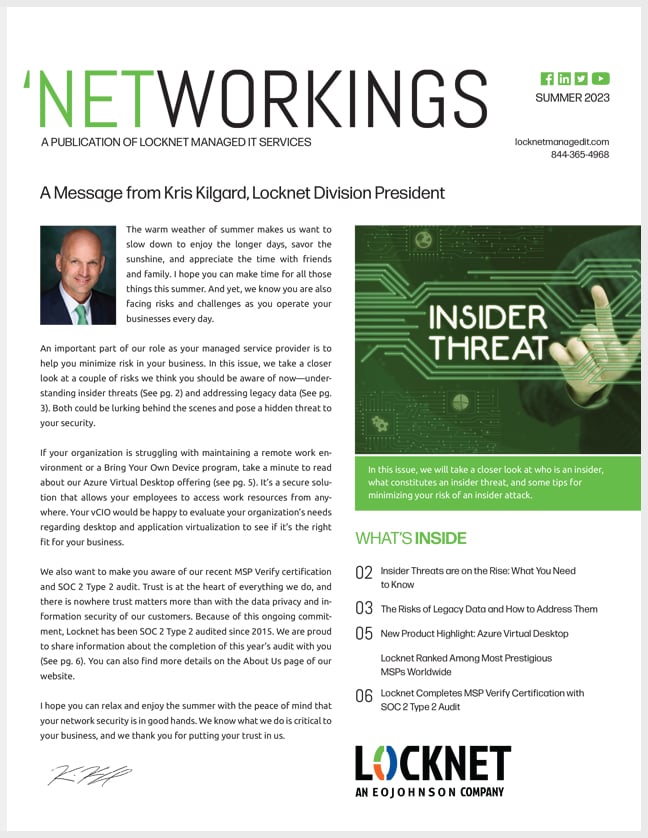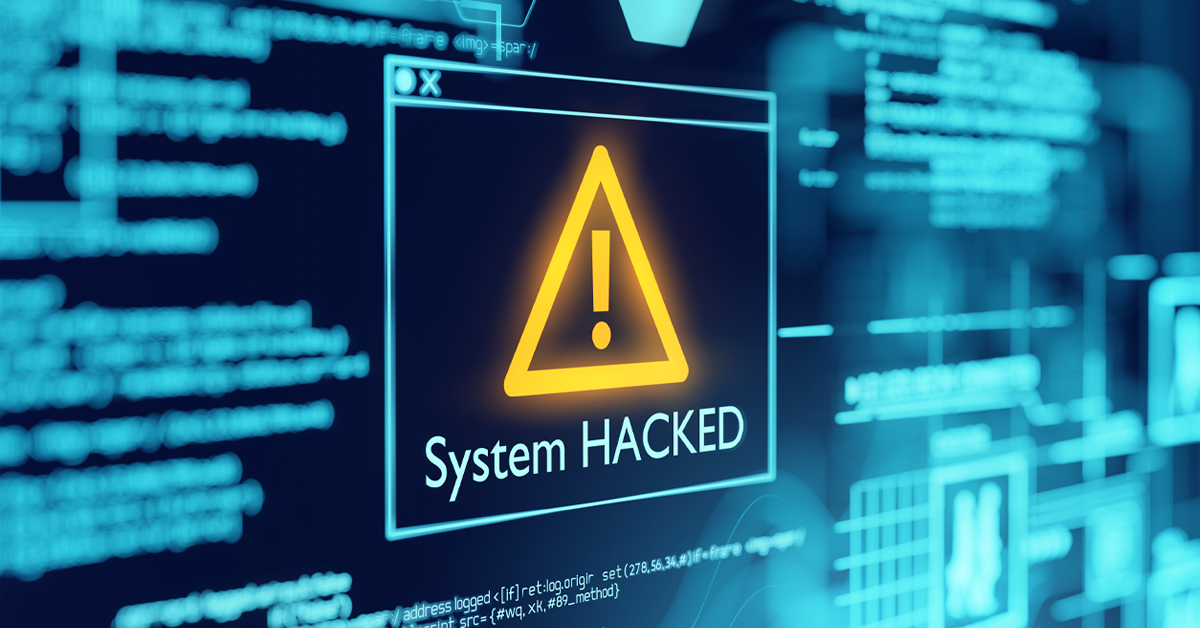Cybersecurity is a growing concern for small businesses across the country. Everything from mobile devices to the refrigerator in the company breakroom can be a potential pathway to a breach.
While cyber threats continue to grow, options for hiring IT security professionals remain in crisis mode.
A severe IT security shortage exists in every sector of the industry
Job openings can’t be filled fast enough. The Bureau of Labor Statistics estimates that there are currently more than 200,000 available cybersecurity jobs in the U.S. alone that are not filled.
Considering the job shortage and the constant drumroll of cybercrime in the news, most small businesses are awakening to their high level of risk and their difficulty in improving it. In a 2017 Verizon Data Breach Investigation Report, 61% of breaches hit smaller businesses last year, up 53% from the previous year.
According to UPS Capitol:
- Cyber attacks cost small businesses between $84,000 and $148,000
- 60% of small businesses go out of business within six months of an attack
- 90% of small businesses don’t use any data protection at all for company and customer information
Plenty of future options for a cybersecurity degree
The U.S. Bureau of Labor Statistics projects cybersecurity jobs to increase by 18 percent through 2024. One of the greatest cybersecurity needs is in the healthcare industry to help secure electronic records and ensure patients’ privacy.
U.S. News and World Report ranks cybersecurity as eighth on a list of 100 best jobs. Professionals in the industry need to have a thirst for knowledge and the ability to learn at an accelerated pace in order to stay ahead of cybercriminals. Threats can change overnight!
It’s a demanding profession and a lot like serious detective work. Most days are not glamorous but can be hugely rewarding, such as when a company has been protected from losing finances and its reputation. The most important job applicant skills recruiters want are insights into intrusion detection, secure software development, and attack mitigation. Right now, those skills are in short supply.
Solving the shortage?
Addressing the crisis requires new education models and speeding up training opportunities. Cybersecurity education has fallen behind in most universities and high schools. High schools need to encourage all students to enter the field.
Interested students should look at university curriculums that offer hands-on, applied learning. Without it, many employers are reluctant to hire applicants—even with master’s degrees in cyber security. They should also check out the background of the faculty teaching the program. Are they currently active in the cybersecurity field? If yes, they will be best able to provide students with the most current learning skills needed in today’s threat field.
We can all take part in cybersecurity
Businesses, organizations, and government bodies of all sizes can encourage careers in cyber security. Scholarships, job shadowing, and mentoring, while still young, are gaining more traction in communities.
One shining example is the Central WI Information Technology Alliance (CWITA), an all-volunteer organization of employers focused on Information Technology workforce challenges and solutions. Their four main objectives are to:
- Grow collaborative pathways and partnerships with the K-16 education system.
- Target and strengthen the development of an information technology workforce.
- Enhance the image of information technology careers.
- Position Central Wisconsin as the hub for information technology opportunities.
On a national level, the "Women’s Cyber Security Initiative”, is working to excite women about a career in the field. Individuals are reaching out too. One cybersecurity professional says when he sees smart curious kids who think hacking is ‘cool’, he tries to influence them to turn their enthusiasm into a more positive direction to ‘protect’ people from hackers.
A closing thought on cybersecurity month
Locknet® Managed IT and our entire team of cybersecurity professionals are pleased to have taken part in Homeland Security’s “Cyber Security Month”. Seeing businesses and lives protected offers great job satisfaction and we’re going to continue to do our part to work with the CWITA and other initiatives to encourage students to enter this challenging industry!









